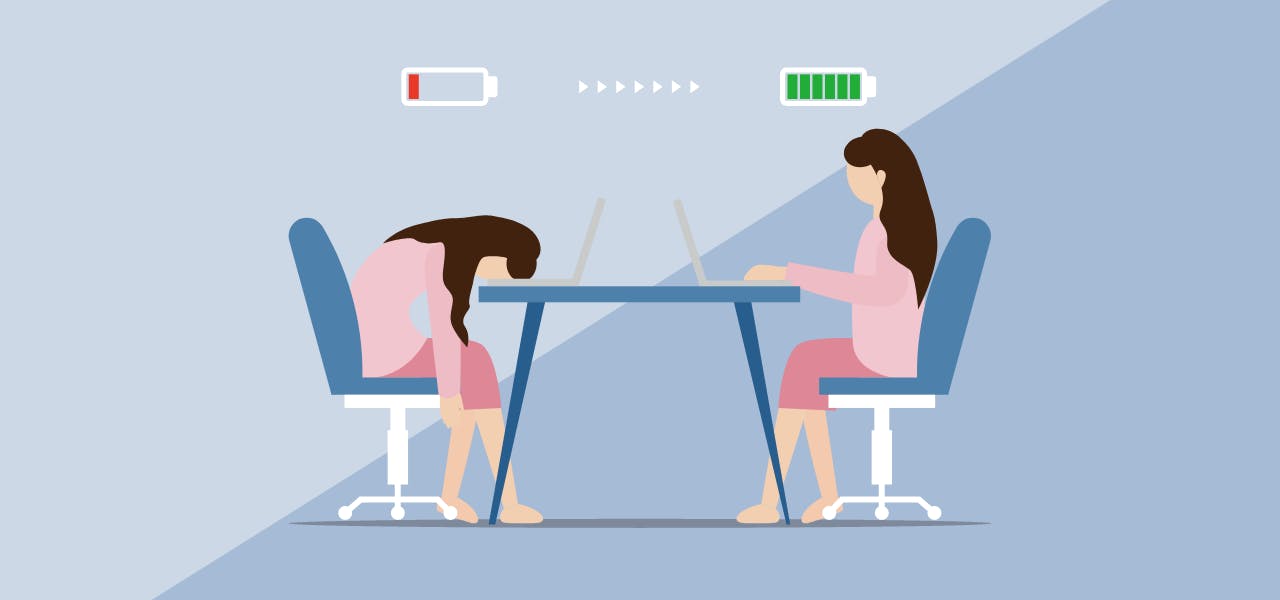Dealing with the academic field in a post-pandemic world means you have a lot of extra stress on top of an already mentally draining career. The path of an academic scholar is challenging, to say the least, and today’s confusing COVID-19 impacted world just adds to the chaos and mental health concerns.
The stress of being a researcher with high expectations of oneself is compounded with the global worry about basic survival just from breathing the air. If you’re one of the rare academic scholars who skate by with the bare minimum, this might not be quite as big of a deal for you. However, there are a lot of researchers who demand the highest standards of themselves, and for those people, the added stress load of COVID-19 and the resulting fallout has increased mental health illnesses at exponential rates. You do want to continue to have high aspirations for yourself and your research, but you also need to have tools to juggle your mental health challenges, too.
The Stresses of Being a Researcher
Sure, every career has its own type of stress! But when you’re a researcher, you’re warned well in advance that this demanding career is going to require a lot of careful juggling in order for you to have a healthy work/life balance.
There are a lot of reasons why the stresses of being a researcher are often more challenging than the majority of other jobs, such as:
● Interdependence. Most of today’s research is not independent. There are many people that work together to get the job done. When you rely on your team in order for research to get done, there are frequently a lot of differences in opinions. Waiting on other people to do their part when they aren’t on time is another form of stress and conflict. When some researchers aren’t communicating or doing what they’re supposed to do, and the entire project, as well as the reputations of the others in the group, hinge on their work, the stress is magnified.
● Contract-based careers. As a scholar with a goal in mind, you know that a lot of your future paths are determined by fixed-term contracts and how well you perform during those times. You need recommendation letters, referrals from others, and published, impactful work to stand out from the many other academics looking for these coveted career roles.
● Other commitments. We all know that life isn’t a mix of going home and going to work. It’s a juggle of many microtasks inside these larger categories. Researchers have a lot of commitments under both of them. In the work field, you’re often teaching, managing students and peers, completing administrative tasks, and performing your own research. At home, there are family expectations to attend to, your own personal health to manage, and a long list of to-dos on your rare time off. Juggling all of these commitments is stressful to anyone, but when the ramifications are as strong as they are for a researcher held to the highest standards, the potential problems increase.
● Long hours. Working as a researcher means signing on for the work, regardless of how long it takes. Grading papers, completing research, compiling lesson plans, writing articles, and attending meetings have no set schedule. Without strict time management strategies, it’s almost impossible to obtain a healthy work/life balance.
With all of these stresses, there is often a lot of conflict between the researcher and their home and work life. Tasks coincide, schedules cross over, and obligations demand being fulfilled regardless of whatever else is going on. Researchers can feel isolated or overstretched, leading to major mental illnesses if they aren’t careful.
Tools to Help You Juggle Your High Standards
Mental health illnesses among researchers, particularly how they affect researcher burnout, has been a topic in the headlines all over the globe. As institutions begin to understand the significance of this problem, advocates for better workplace practices have been speaking up. Recommendations for healthier career trajectories and more family-friendly work environments and schedules are called for.
In the meantime, though, you need to have your own tools in order to meet the high aspirations of your goals and still keep your sanity. Experts recommend strategies such as:
● Engaging in mental health training when it is offered in order to keep new ideas in your toolkit.
● Joining online support groups for on-demand counseling services.
● Learning about the different mental health illnesses and their signs so you can catch yourself if you begin to spiral.
● Investing in time management strategies and tools in order to better juggle all your tasks.
● Reading self-help blogs and books when possible to get to know yourself better.
Ultimately, the better you know what’s going on in your mind, the quicker you can catch yourself before you fall into a mental health rut or end up with your career as another victim of researcher burnout.
